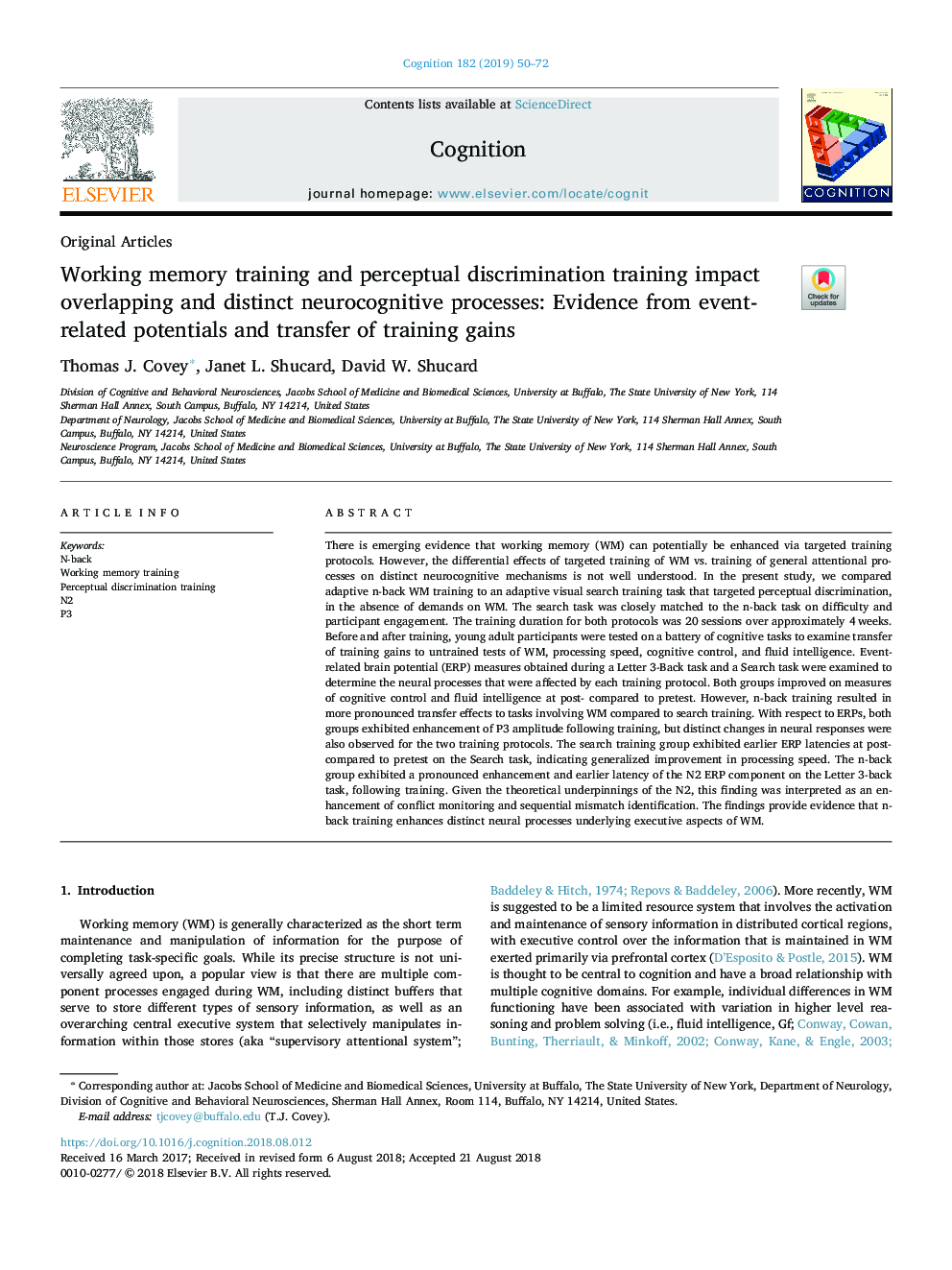| کد مقاله | کد نشریه | سال انتشار | مقاله انگلیسی | نسخه تمام متن |
|---|---|---|---|---|
| 10147046 | 1646431 | 2019 | 23 صفحه PDF | دانلود رایگان |
عنوان انگلیسی مقاله ISI
Working memory training and perceptual discrimination training impact overlapping and distinct neurocognitive processes: Evidence from event-related potentials and transfer of training gains
ترجمه فارسی عنوان
آموزش حافظه کاری و آموزش تبعیض ادراکی از همپوشانی و فرآیندهای شناختی متمایز تاثیر می گذارند: شواهدی از پتانسیل های مرتبط با رویداد و انتقال دانش های آموزشی
دانلود مقاله + سفارش ترجمه
دانلود مقاله ISI انگلیسی
رایگان برای ایرانیان
کلمات کلیدی
موضوعات مرتبط
علوم زیستی و بیوفناوری
علم عصب شناسی
علوم اعصاب شناختی
چکیده انگلیسی
There is emerging evidence that working memory (WM) can potentially be enhanced via targeted training protocols. However, the differential effects of targeted training of WM vs. training of general attentional processes on distinct neurocognitive mechanisms is not well understood. In the present study, we compared adaptive n-back WM training to an adaptive visual search training task that targeted perceptual discrimination, in the absence of demands on WM. The search task was closely matched to the n-back task on difficulty and participant engagement. The training duration for both protocols was 20 sessions over approximately 4â¯weeks. Before and after training, young adult participants were tested on a battery of cognitive tasks to examine transfer of training gains to untrained tests of WM, processing speed, cognitive control, and fluid intelligence. Event-related brain potential (ERP) measures obtained during a Letter 3-Back task and a Search task were examined to determine the neural processes that were affected by each training protocol. Both groups improved on measures of cognitive control and fluid intelligence at post- compared to pretest. However, n-back training resulted in more pronounced transfer effects to tasks involving WM compared to search training. With respect to ERPs, both groups exhibited enhancement of P3 amplitude following training, but distinct changes in neural responses were also observed for the two training protocols. The search training group exhibited earlier ERP latencies at post- compared to pretest on the Search task, indicating generalized improvement in processing speed. The n-back group exhibited a pronounced enhancement and earlier latency of the N2 ERP component on the Letter 3-back task, following training. Given the theoretical underpinnings of the N2, this finding was interpreted as an enhancement of conflict monitoring and sequential mismatch identification. The findings provide evidence that n-back training enhances distinct neural processes underlying executive aspects of WM.
ناشر
Database: Elsevier - ScienceDirect (ساینس دایرکت)
Journal: Cognition - Volume 182, January 2019, Pages 50-72
Journal: Cognition - Volume 182, January 2019, Pages 50-72
نویسندگان
Thomas J. Covey, Janet L. Shucard, David W. Shucard,
